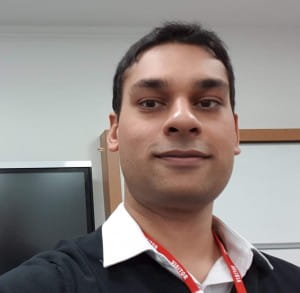Blog
Getting back into the room
Our work as medical mediators and facilitators involves helping people have better, more constructive, conversations.
Working remotely has been a lifesaver for many teams, who are able to connect and share throughout the pandemic. But at what cost?
After 18 months of working almost exclusively from behind a desk, we’re being asked more and more by healthcare teams to step back into the room with people to facilitate team discussions. It has been a revelatory experience. Here are some observations we’ve gleaned from the last few months as we’ve started face to face working with teams again:
Communicating behind a mask: simple strategies to build connection
When disagreement arises between healthcare professionals and patients and their families, the situation can be stressful for all involved. The emotional impact on staff and families means that the possibility for misunderstanding and misinterpretation of views and intentions is high. What is needed is open, empathic communication driven by curiosity to really understand the views of the other person.
But how do we communicate empathy and compassion when the current Covid situation requires us to wear masks, avoid touching each other and socially distance? Our facial expressions and gestures are crucial in conveying our message and in emotionally relating to each other. Our brains are wired to recognise the emotional state of a person by the action of their facial muscles – and crucially the lower and middle part of the face play a major role. These are the very parts that are covered with a correctly fitted face mask.
What mediators need to know about mental health
Q&A with Arabella Tresilian, Associate Mediator, Medical Mediation Foundation

At the Civil Mediation Council Conference 2020, the Medical Mediation Foundation’s Arabella Tresilian was interviewed by expert mediator Carolyn Graham on what mediators need to know about mental health and mediation. Here are some of the key takeaways from their conversation.
[Please be aware that this article covers some sensitive topics and reader discretion is advised.]
What brings you to mediation with a specialist interest in mediation and mental health?
For twenty years I worked as a consultant in management and organisational development in the public and corporate sectors, with a specialism in mental health and social inclusion. In this work, I saw the stress and distress caused by conflicts and disputes and this initially piqued my interest in mediation.
I also have lived experience of mental ill-health going back to my teenage years, and in my late thirties I received a diagnosis of autism that helped me understand my unique neural wiring. A few years ago, I was particularly unwell with regards to my mental health, and encountered a series of legal and financial disputes as a result - leaving me even more emotionally devastated. It confirmed my belief that there must be a better way for resolving disagreements than via legal wrangling, and I decided to retrain as a mediator specialising in cases involving individuals experiencing mental ill-health.
I now mediate in Court of Protection, workplace, employment, civil and community cases, where mental ill-health is or may be a feature of the mediation. I also work with Mind and Bath Mind to train groups in Mental Health First Aid, to encourage positive dialogues about mental wellbeing at work and in the community. I always emphasise that I’m not a clinician, but I speak as a lay person keen to support a better societal understanding of mental health.
Reflections of a soon-to-be Consultant: How mediation changed my career.
by Dr Gamunu Ratnayake

“Urgh that family is so difficult, I hate dealing with them!”
“This patient is such hard work, why won’t they just listen!”
“I don’t understand why they are going against my advice, if they did what I suggested it would be so much better for them.”
“I’m pretty sure that family is going to make a complaint.”
“He/She is so difficult to work with.”
“They are so unreasonable!”
“I hate working with that team!”
Over the last 13 years I have had the privilege of working as a Respiratory and Intensive Care registrar before re-training as an Anaesthetist. I am currently an ST7 in Anaesthetics at the Evelina Children’s Hospital. I found out about mediation quite by accident. I was interested in Medical Law and was considering a conversion course. Whilst discussing the conversion course with a lawyer, they mentioned that many of their most successful cases never got to court. Instead by using mediators, they took antagonistic (even hostile) situations between families and clinicians and resolved them so that both sides felt heard and understood. This sounded like the Holy Grail to me. So I embarked on training as a mediator, to learn these transformative skills.
Using Townhalls to generate engagement in a clinical team
One of the most common features we come across when working with clinical teams is an imbalance of voices. We are often asked to help redress that imbalance and bring about a more open, inclusive and fluid culture of communication.
Townhalls are really effective at kickstarting this process.

Speaking up and making their voices heard can be a real challenge for some members of a clinical team.
Often, the imbalance stems from where power is located within a group. Power can emanate from experience, seniority, hierarchy, background or personality (or a myriad of other places).
Those with the power are often unaware of their impact on those that don’t. The effect can be that certain people dominate proceedings, whilst others find themselves mute at the fringes.
There is a cost to losing those quieter voices.